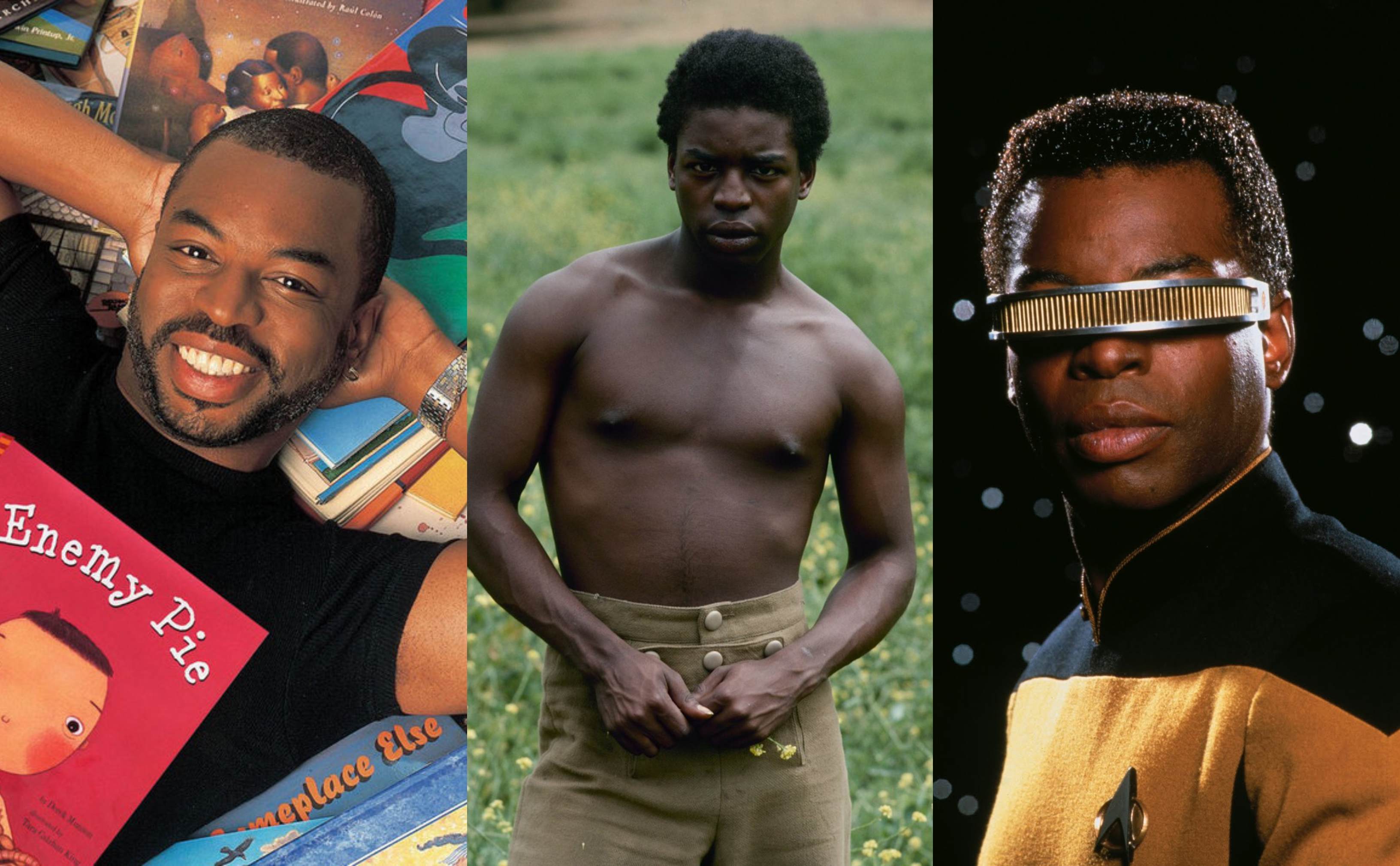In the interest of giving flowers to our cultural greats while they’re still able to smell them, we need to talk about LeVar Burton. Burton’s contributions to the culture, all of which have left a mark on the masses, often seem to fly under the radar; but LeVar Burton is a living legend, and we better not forget that.
Reading Rainbow

One myth that’s generously thrown about is how every child has access to public libraries whenever they want. It’s also often a follow-up or precursor to the accusation that “Black people, particularly kids, don’t read.”
While the fact that public libraries are freely accessible resources is true in theory, people who grew up in rural places with limited transportation — like the town I came up in, with a population of 4,000 — know that getting to the library is often a pipe dream in practice. Even today in the internet age, the American Library Association has noted that rural libraries “often offer fewer formal services than their peer institutions.” Plus, any Black kid who’s ever asked their Black, adult relative for a ride (to anywhere, ever – library or not) on a day off of work is keenly aware that the process involves more than simply saying, “Take me here.”
Reading Rainbow, which Burton not only hosted but also served as executive producer on, offered kids a real-world solution to this issue. Broadcast on PBS, a free network channel, the show was designed to engage children by talking directly to them. The series also exposed its kid audience to books and cultures that children may not have otherwise been exposed to. Bonus: The show was Black as hell.
I still remember the episode when Burton introduced Mufaro's Beautiful Daughters: An African Tale. Seeing the illustrations of Black characters and hearing the narration of Black voices in theatrical African accents was so moving to me, I immediately went to my elementary school library to check it out. The librarian had never heard of the story, but had it inventoried in just for me.
YouTube | Abagail Witting
(Side note: Disney, Marvel or whoever is reading this — can we get a live action film? Naturally, with an all Black production team, director and cast.)
Also, who can forget the melodic theme song that had Tina Fabrique belting what sounded like a jazz standard sung on a floating cloud, as viewers were mesmerized by a cartoon butterfly? Again, Black as hell.
YouTube | Matthew J. Smith
Reading Rainbow ran for 21 seasons and won over 200 broadcast awards. However, the real award was the millions of children who Burton inspired, including all the brown girls, boys and gender fluid youth interested in learning because of a host they could see themselves in — I was one of them.
Roots
Some millennials — myself included — may not have initially realized that LeVar Burton played the leading role of Kunta Kinte in the game-changing 1977 miniseries adaptation of Alex Haley’s Roots: The Saga of an American Family until our older years. Burton shined in a more seasoned all-star cast, which also included John Amos, Cicely Tyson, Maya Angelou and Louis Gossett Jr. In fact, he was just an undergrad at the University of Southern California and only two years into his studies when he was cast in the pivotal role. Before that? He was in the seminary!
The series was heavy and long; all things most of us wanted to avoid. It wasn’t until we were equipped with a lengthier attention span, emotional maturity and the cultural understanding regarding the significance of our (Black) history that we were able to handle the brutality presented on the screen and appreciate the Black excellence that was Burton’s performance. Pontificating on the importance of the broadcast of Roots would be preaching to the choir, I hope. Recently, Vulture noted Roots as the “single most important piece of scripted television in broadcast history” — which we already knew.
Star Trek: The Next Generation

Now it's considered all sweet and trendy to be labeled a "Blerd," but of course this wasn't always the case. Black characters in science fiction and fantasy stories have consistently been scant. Ironically, it was the original 1960s version of Star Trek, starring Nichelle Nichols in her groundbreaking role as Lieutenant Uhura, which literally flipped the script by showcasing a Black woman as the fourth in command of a spaceship. Her character set the precedent for future Blerds as we know it.
Almost 30 years later in 1987 — with honestly little traction in between — Burton premiered as a holy grail of modern-day Blerdom. He portrayed chief engineer Lieutenant Commander Geordi La Forge on Star Trek: The Next Generation. In a space (no pun intended) where Black fantasy fans are still fighting for representation and visibility, Geordi is included as one of the original OGs of the Black cosplay world. We should thank Burton for that.
Black culture is heavy in acknowledging our elders, may-wakers and those who came before us. In this age of high paced "what have you done for me now" culture, it's important that we continue to hold fast to those traditions. Even with all his success, Burton hasn’t shown any signs of slowing down, most recently he appeared in Jordan Peele’s “Weird City.”
LeVar Burton has hit every possible mark of icon status and he's done so quietly, humbly and centered in Blackness. Let's shout it from the rooftops with the hope that he hears it.
